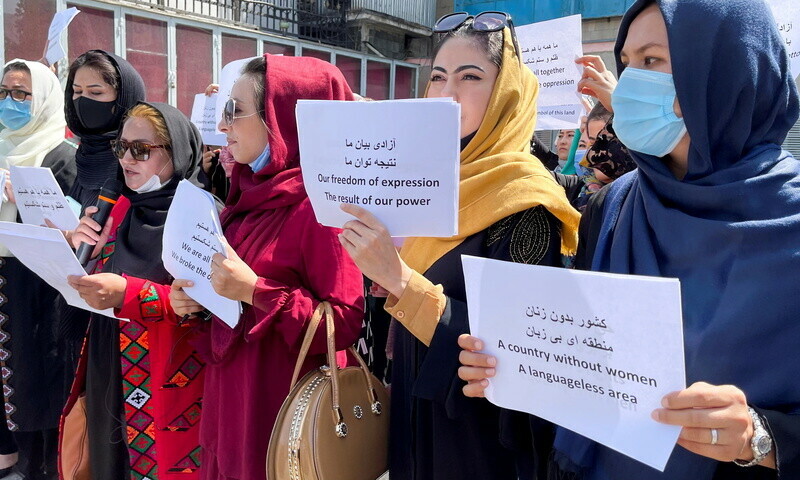Taliban’s ban on women’s education over the age of 12 in Afghanistan reached 1,000 days Thursday. This milestone has ignited global outrage and strong demands for the immediate resumption of children’s learning.
UNICEF Denounces the Ban
The United Nations Children’s Fund (UNICEF) has labeled the ban as a “sad and sobering milestone.” According to UNICEF, 1,000 days out of school equate to 3 billion learning hours lost. Catherine Russell, the executive director of UNICEF, has warned the male-only Taliban government that no country can progress if half of its population is left behind.
“For 1.5 million girls, this systematic exclusion is a blatant violation of their right to education,” Russell stated. “It leads to dwindling opportunities and deteriorating mental health,” she added. “As we mark this grim milestone, I urge the de facto authorities to allow all children to resume learning immediately.”
Women Banned from Many Public Places
The fundamentalist Taliban have prohibited girls from attending school beyond the sixth grade since retaking control of Afghanistan in August 2021. The ban was later extended to universities, preventing female students from completing their advanced education. Furthermore, women are banned from public places like parks, beauty parlors, and gyms. They are also barred from undertaking road trips unless accompanied by a male relative.
Irreplaceable Loss
“Afghanistan will never fully recover from these 1,000 days,” said Heather Barr, the associate director for women’s rights at Human Rights Watch. “The potential loss in this time — the artists, doctors, poets, and engineers who will never get to lend their country their skills — cannot be replaced,” she added. “Every additional day, more dreams die.”
UN Officials Call for Accountability
In his latest report, the U.N. special rapporteur on Afghan human rights called for the Taliban to be held accountable for their crimes against women and girls. Richard Bennett alleged that de facto Afghan leaders have enforced “an institutionalized system of discrimination, segregation, disrespect for human dignity, and exclusion of women and girls.” He will present and discuss the report at the U.N. Human Rights Council meeting scheduled for June 18.
Taliban’s Response
The Taliban reject criticism of their government and policies, claiming they are aligned with local culture and Islam. Their reclusive supreme leader, Hibatullah Akhundzada, has denounced calls to reform his policies as interference in Afghanistan’s internal affairs.
Afghanistan’s Ongoing Crisis
The impoverished country is suffering from years of war and repeated natural disasters. U.N. agencies estimate that more than half of the population in Afghanistan — 23.7 million people, including 9.2 million children — need relief assistance.
“Education doesn’t just provide opportunities. It protects girls from early marriage, malnutrition, and other health problems,” said UNICEF executive director Russell. “It bolsters their resilience to disasters like the floods, drought, and earthquakes that frequently plague Afghanistan.”


